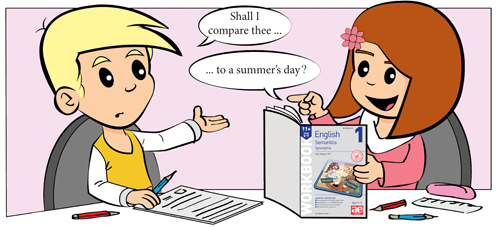Saturday 21st March is World Poetry Day

In 1999, the United Nations Educational, Scientific and Cultural Organisation (UNESCO) declared that every year the 21st March was to be World Poetry Day. Why would they want to draw our attention to poetry as a literary form? One reason is that reading and listening to poetry can enrich our lives.
Poetry is ‘heightened language’, where each word and turn of phrase has been carefully chosen by the poet to express meaning. Poetry states in just a few words what often takes pages of prose. For example, in just one 14-line sonnet, ‘Shall I compare thee to a summer’s day?’, the author, William Shakespeare, is able to capture the essence of true love and convey its deepest meaning, even arousing these same feelings in the reader.
The ability to appreciate poetry and literature comes from knowledge of the subtlety of language, and how choosing one word instead of another can significantly alter the meaning. The Semantics series published by AE Publications will help children develop their ability to distinguish between words that have similar meanings (synonyms), opposite meanings (antonyms) or more than one meaning (homonyms).

